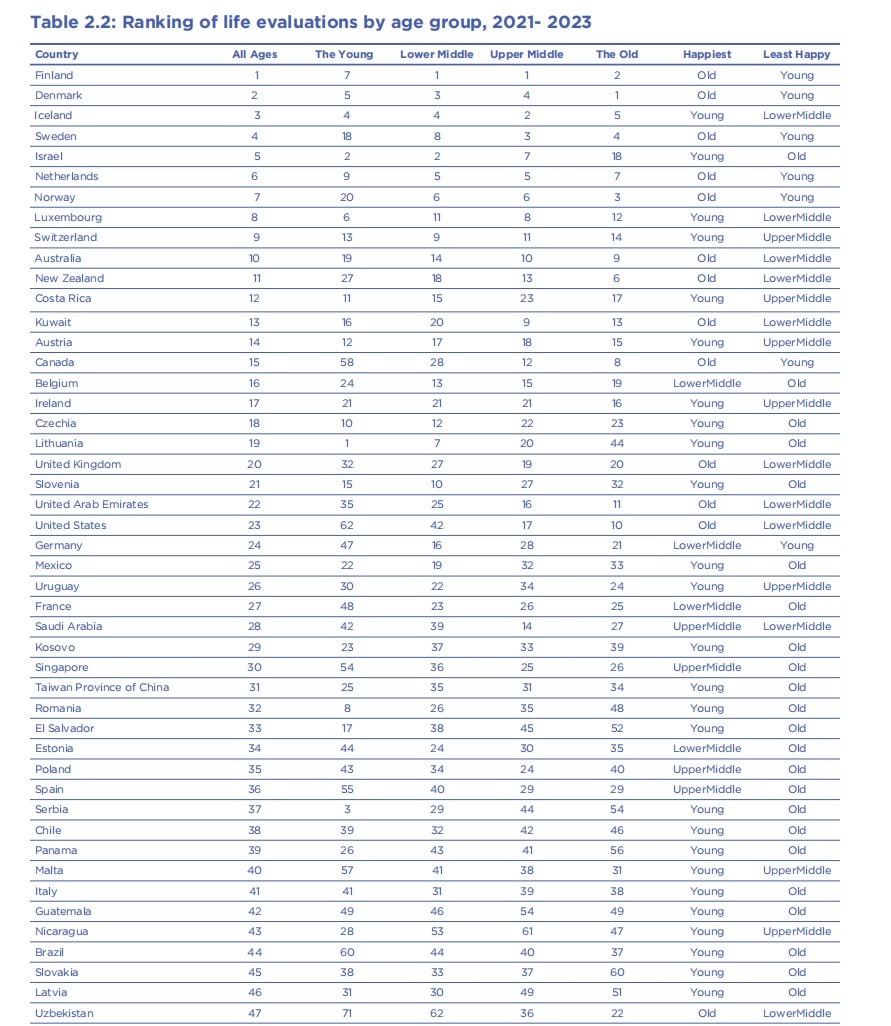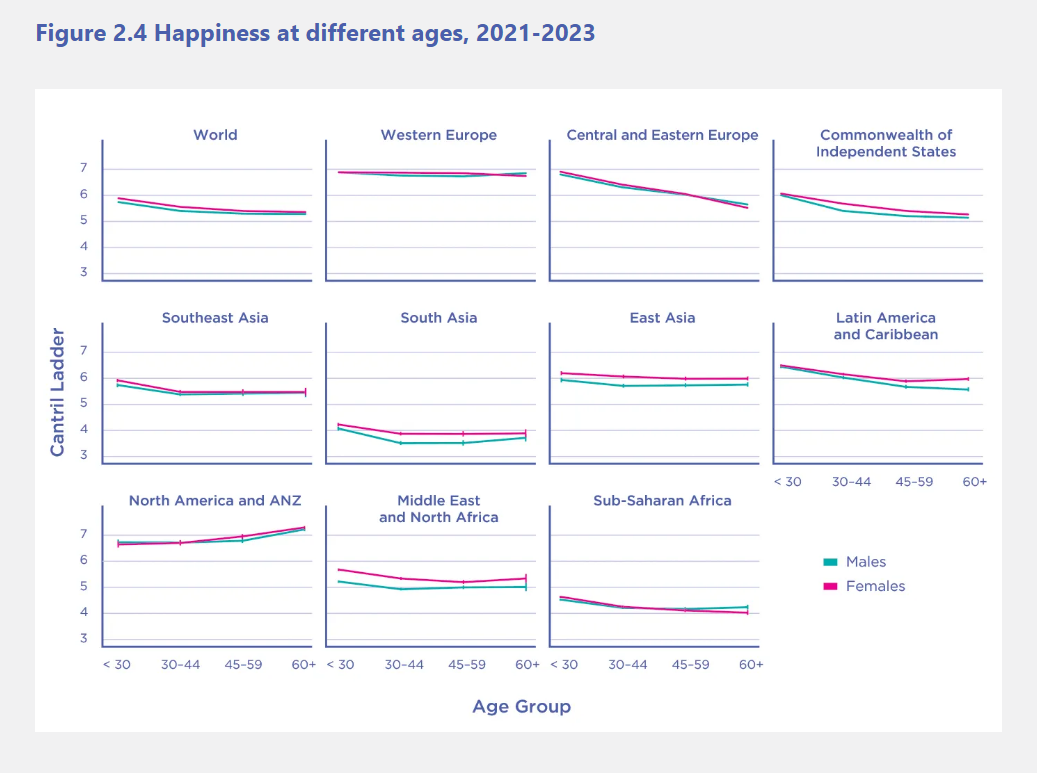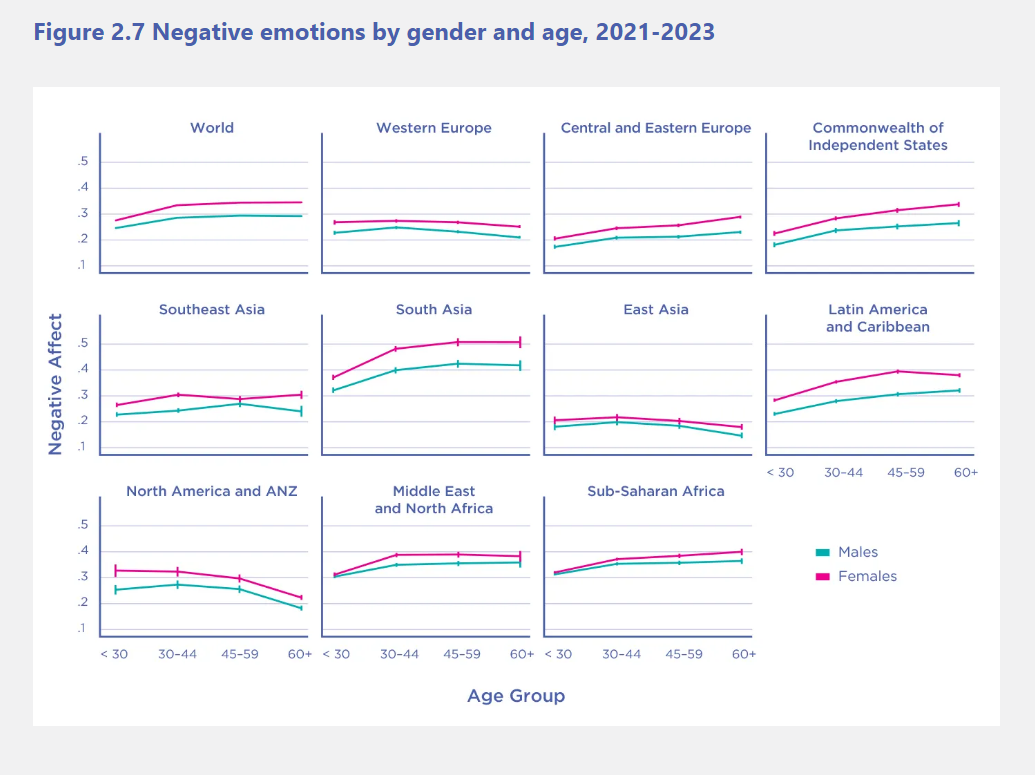Singapore has once again clinched the title of the happiest country in Asia, marking its second consecutive year at the top spot, according to the 2024 World Happiness Report released on Wednesday.
I know, I know, with rising costs of living, declining birth rates and crazy hectic lifestyles, it’s hard to believe, right?
(Don’t shoot the messenger, though. Even as I’m sitting here writing this while juggling two jobs, I am also in denial – Like who did they interview? The pigeons and mynahs???)

The rankings, which encompass 143 countries, saw Singapore securing the 30th position globally, a slight dip from the 25th place in 2023, and an improvement from 32nd place in 2021.
Finland led the pack this year, with Denmark and Iceland following closely behind.
Lesotho, Lebanon and Afghanistan came in last place.
Meanwhile, the Top 10 Happiness Ranking in Asia is as follows:
- Singapore
- Taiwan
- Japan
- South Korea
- Philippines
- Vietnam
- Thailand
- Malaysia
- China
- Mongolia
What is the World Happiness Report?
The World Happiness Report, a collaborative effort by researchers and wellbeing experts worldwide, relies on data from the Gallup World Poll spanning from 2021 to 2023.

This data includes responses to the ‘Cantril Ladder’ question, where individuals rate their current lives on a scale from 0 to 10.
On top of that, analysts delved into six crucial metrics: GDP per capita, life expectancy, social support, freedom, generosity, and corruption perception, providing a more nuanced understanding behind individuals’ life evaluations.
The World Happiness Report said in a statement that, “These factors help to explain the differences across nations, while the rankings themselves are based only on the answers people give when asked to rate their own lives.”
Data for these metrics were sourced from reputable organizations such as the World Bank and the World Health Organization.
How in the World is Singapore First in Asia?
Shun Wang, co-author of the report, told CNBC that Singapore performed exceptionally well in terms of GDP per capita, one of the highest rankings in their dataset.
(Huh, and we thought they said that say money doesn’t buy happiness…)
On top of that, we have apparently low perception of corruption, with Shun Wang stating that it is “lowest among all countries in our data”.
Despite these strengths, Singapore unfortunately falls short in perceived social support, freedom of life choices, and generosity. Yikes.
Jan-Emmanuel De Neve, Director of the Wellbeing Research Centre at Oxford University, commended Singapore’s strides in promoting healthy life expectancy but urged the government and people to enhance overall quality of life.
De Neve also said that he would “love to challenge the Singaporean government and the people of Singapore” to find ways to make use of the “extraordinary city-state” to improve the quality of life of the people here.
In response to CNBC’s inquiry, Singapore’s government referenced its recent Budget statement, and highlighted all initiatives geared towards bolstering various segments of society in the future.
These measures, highlighted by the Prime Minister’s Office, target wage disparity reduction and fostering a more philanthropic culture.
On the flip side, Myanmar, Cambodia, India, Sri Lanka, and Bangladesh emerged as Asia’s least joyful nations, as per the report.
Notably, India, the globe’s most populous country, ranked 126th among 143 surveyed locations.
Different Happiness Trends Across Age and Gender Groups
For the first time, the report provides separate rankings by age group, revealing variations from the overall rankings.
Interestingly, the report notes declining happiness trends across age groups in Southeast Asia, with Singapore significantly contributing to this pattern.

According to the World Happiness Report, in Singapore itself, individuals aged 45-59 rank the happiest while individuals aged 60 and above are the least happy.
In a departure from this trend, countries like Norway, Sweden, and Germany are witnessing increased happiness among older populations compared to younger demographics.
To put it into broader perspective, however, the youth of Singapore (aged 30 and below) rank at 54th place in the entire world.
The report also highlighted that the females in Singapore (and across the globe in general) are happier than their male counterparts. Yet, it is reported that females experience a higher amount of negative emotions.

Lithuania ranks highest for children and young people under 30, while Denmark emerges as the happiest nation for those aged 60 and above.
The top 10 countries in the global index have seen minimal changes, except for the addition of Costa Rica and Kuwait, which entered the top 20 list for 2023.
However, the United States experienced a significant shift, dropping out of the top 20 for the first time in the report’s 12-year history, securing the 23rd position instead, primarily due to a decline in the wellbeing of Americans under 30.




